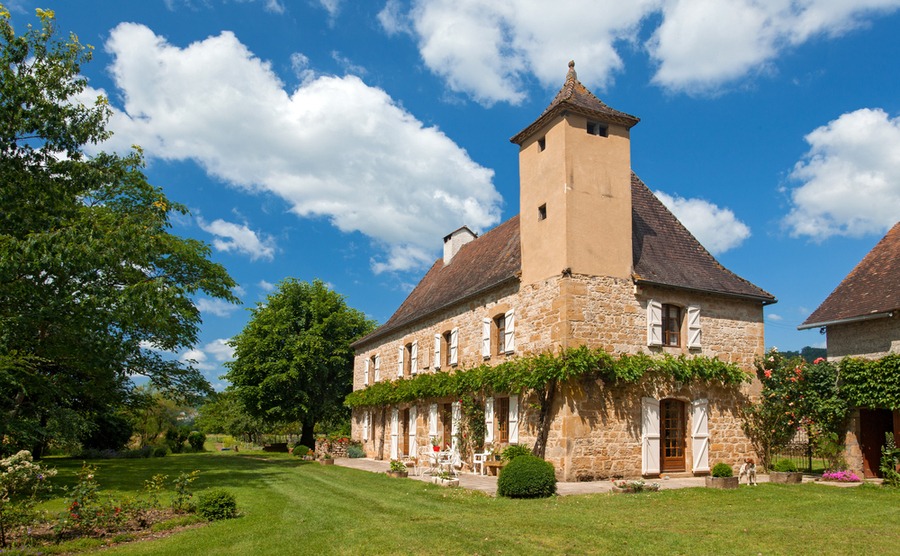France is one of the safest countries in the world to buy property, and its estate agents are well used to selling homes of distinction to international clients. From quaint farmhouses in Provence to grand châteaux in Brittany and Haussmanien apartments in Paris, France has a mouthwatering choice of homes that will enhance any life. But how do you buy a home in France? (And what is a notaire, exactly!)
How do I choose a solicitor?
First and foremost, you need to get the right support on your side before commencing your search. This includes finding a reputable, independent solicitor.
If you can do this before you start to view properties, then you’ll be in place to act swiftly and secure your dream home in France.
So, what attributes should you look for in a solicitor? Firstly, they should be independent of developers or any other involved parties. Secondly, they should be bilingual. An impartial solicitor who can explain the situation to you in English, but deal with these complex matters in French, is invaluable. Finally, they should have expert knowledge of the local area and, ideally, experience of aiding overseas buyers.

If you’re buying a home in France, it’s important to follow these key five steps.
What is the role of the notaire?
This office has a long history, stretching right back to the Romans. It was codified under Napoleon and has been little changed since. A notaire, or notary, is a self-employed representative of the French state who authenticates and authorises various stages of the purchase process. They’re a neutral element of the process who must neither your, nor the vendor’s side. You can use the same notaire as the seller – as they don’t represent anyone’s interests specifically – or you can find your own, should you wish. They will charge fees, but if you both use your own, they’ll only get half the fees each.
A notaire, or notary, is a self-employed representative of the French state who authenticates and authorises various stages of the purchase process.
How do I purchase a home in France?
You’ll need to follow a relatively strictly delineated process. It may seem like a lot of steps, but it will help ensure your dream home in France is free of any legal or financial issues before you take up residence or start to rent it out.
1. Bon de visite
If you are purchasing with the help of an agent, you’ll like have a request for a bon de visite. This guarantees any offers will go through them, and gives them the protection of you not choosing a different agent. That said, it’s important to highlight that this doesn’t bind you to making a purchase. You will still need the seller to accept any offer you make.
2. Compromis de vente
This is the French equivalent to the ‘exchange’ stage. Both you and the vendor sign this, which commits both to continuing the transaction. The vendor is now completely bound to make good the sale, but you, the buyer, do have a seven-day ‘cooling off’ period. You can choose not to continue during this period.
Once the period is up, however, both must continue with the purchase. You’ll need to pay 10% of the property’s value as a deposit to the notaire.

The compromis de vente is an important stage in committing to the purchase of a home in France.
3. Property searches
As soon as the compromis de vente is signed, the notaire is free to start making searches on the property’s documentation. They will check the right right to ownership, boundaries and similar details in the Land Registry. However, they won’t look at any private planning permissions near the property, so it’s incumbent on you to request these from your town hall (mairie).
4. Acte de vente
The actual sales act often takes place around two to three months later. You and the buyer will assemble in the notaire’s office, known as an étude, where she or he will read out the sales act to you. You will both sign it and the notaire will officially authenticate it.
At the same time, you will pay the acquisition fees. These vary depending on circumstances, but are made up of three parts. Stamp duty, or droit d’enregistrement, comes to either 3.8% of 4.5% depending on your municipality, variable disbursements (débours). Finally, there’s the notary’s fees, émoluments. They will calculate these on the following sliding scale:
| €0 to €6,500 | 3.945% |
| €6,500 to €17,000 | 1.627% |
| €17,000 to €60,000 | 1.085% |
| Above €60,000 | 0.814% |
5. Enregistrement
Finally, the notaire will publish the sale in the Land Registrar. By law, they are required to keep the deeds on file in their office for 75 years and then in the National Archives. This means they develop an excellent knowledge of the local area and properties – they will likely already have details about your new home on file when you start the purchase process.






